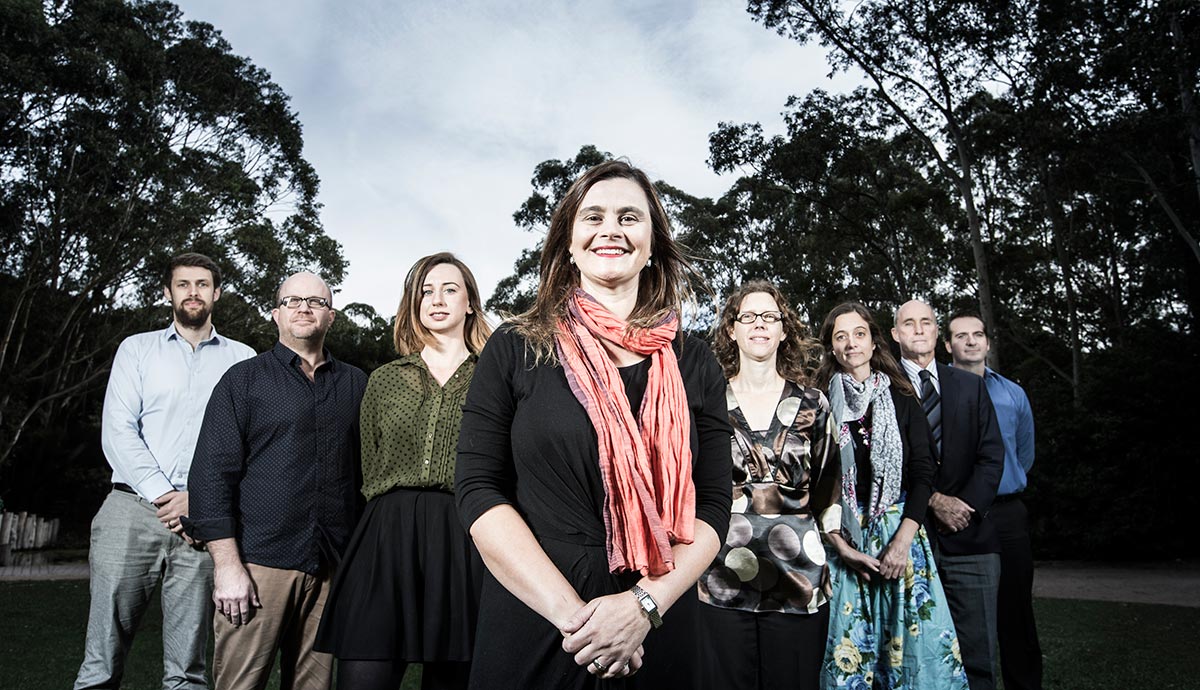May 31, 2016
Equipping students with the skills needed to manage dementia
Pilot project to help the next generation of professionals tackle the growing issue of dementia in Australia.
A pilot project to equip the next generation of professionals with the skills needed to address the growing issue of dementia is underway at UOW.
The Dementia Enabling University Strategy (DEUS) aims to equip students studying a range of disciplines including law, engineering, psychology, media and business with the skills needed to address the growing challenge of dementia, a disease which affects 350,000 Australians, a figure that will rise to one million by 2050.
Professor Richard Fleming, Director of the NSW/ACT Dementia Training and Study Centre at UOW, is leading the strategy in conjunction with UOW dementia expert Dr Lyn Phillipson.
“There is a pressing need to engage the intelligence and skills of the next generation of professionals to address the challenges faced by people living with dementia and those caring for them,” Professor Fleming said.
“We need to create new forms of infrastructure, treatment, care, service delivery, design and communication that will foster an inclusive community to meet one of the major challenges of the 21st century.”
As part of the DEUS pilot study, the project team is working with academics across UOW to determine how and where dementia-specific content may fit within existing courses, for example in the form of guest lectures, internships or placements and project-based opportunities for students to better understand the ‘real-world’ issues faced by people with dementia.
A number of project activities have already taken place. Earlier this month author, academic and dementia advocate Kate Swaffer, who was diagnosed with younger onset dementia at just 49, gave a guest lecture to journalism students on how dementia is portrayed in the media.
Ms Swaffer, who is also studying a PhD at UOW, is part of the DEUS leadership team.
“Involving people with dementia in this project is a major step forward in reducing the isolation, stigma and discrimination, which are still the salient features of the lived experience of dementia,” she said.
“I hope DEUS takes dementia beyond the medicalisation we currently face, to a new level of care and support as we engage and educate students in dementia generally, and to see how their own disciplines can ensure independence, autonomy and the human rights and disability rights of people with dementia are met.”
Other dementia-specific content that is being developed by Dr Linda Steele includes a new elective within the Bachelor of Laws that will explore the relationship between the complex and at times contradictory roles of law in the lives of people with disabilities, including dementia.
In addition, as part of the Bachelor of Social Sciences Dean’s Scholar program, Dr Jenny Atchison will support students to complete a module on leadership and Dementia and their role as future social scientists in a changing world where leadership is required.
Engineering students will also take part in a dementia-related project and solution-based design placements with funding to establish ‘design studios’ to improve the knowledge and skills of future engineers so they can design appropriately for people with dementia.
Professor Fleming said he looked forward to many more opportunities to incorporate dementia-specific content into UOW courses and to inspire a new generation to work and research in areas which will enable people living with dementia.
To read more about the project, see recent article published in the Australian Journal of Dementia Care.
Photo: DEUS Project Leader Dr Lyn Phillipson, from the Faculty of Social Sciences, with (from left) Mr Shawn Burns (Journalism), Ms Fallon Forbes (Dementia Training and Study Centres), Dr Lynnaire Sheridan (Business), Dr Linda Steele (Law), Professor Chris Cook (Engineering and Information Sciences) and Dr Sasha Nikolic (Engineering).
